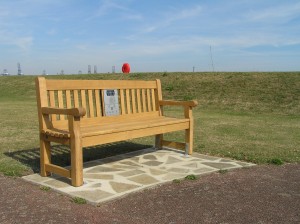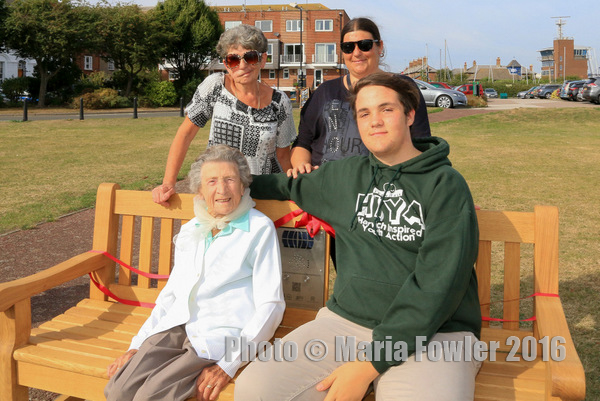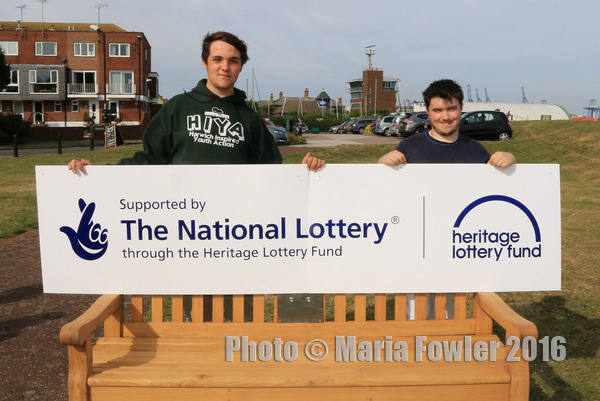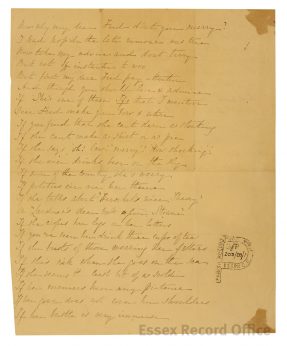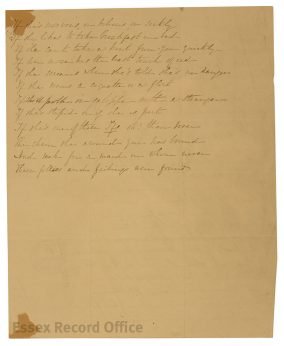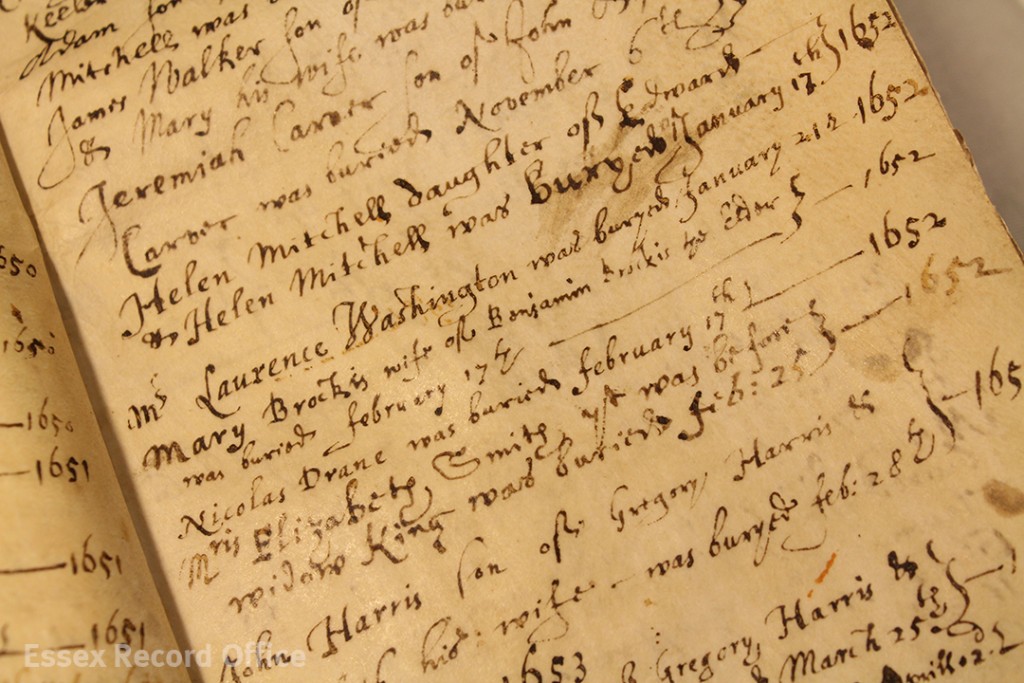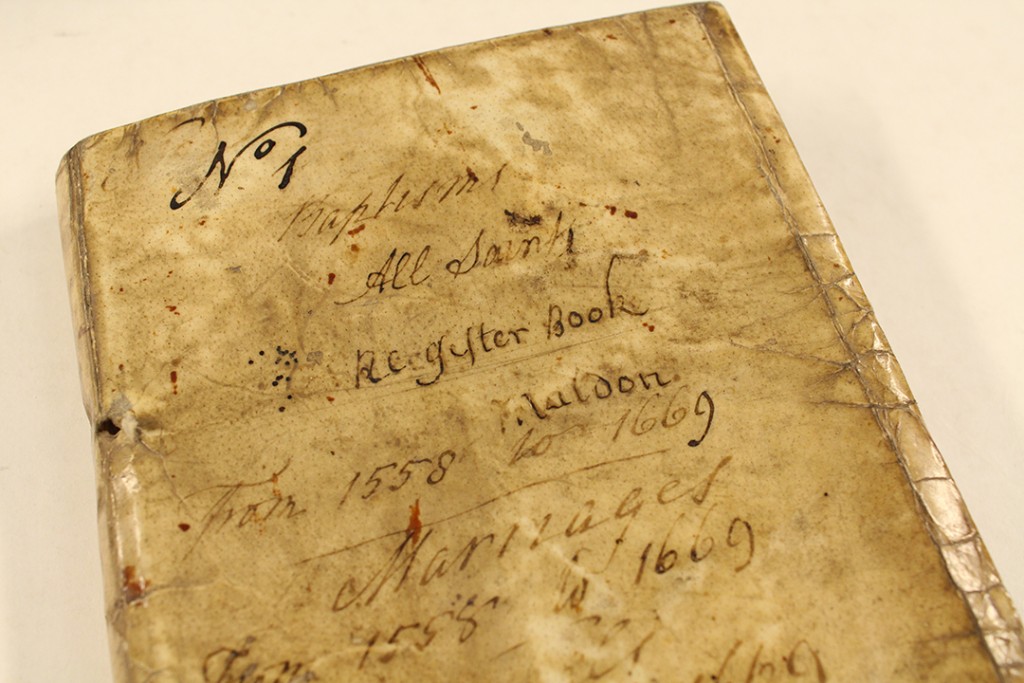Did conversation at your family get togethers over Christmas turn to your family history? Finding out about the lives of your ancestors can be an absorbing and rewarding hobby, and here at the Essex Record Office we can help you get started on your search, whether you visit us in person or use our records online.
Tip no. 1: Talk to your relatives and search family papers
Talk to your relatives – particularly older generations. Find out what they know and remember, and write it all down. You could even make a sound or video recording of your conversations.
Look out for any old photographs, birth, marriage and death certificates, military records, medals, or if you’re very lucky, letters or diaries that you or relatives might have.
Use what you find out to start to build your family tree. Write down everything you know so far about when and where people were born/married/died, and any other key information about them. This will help you work out what else you would like to find out.
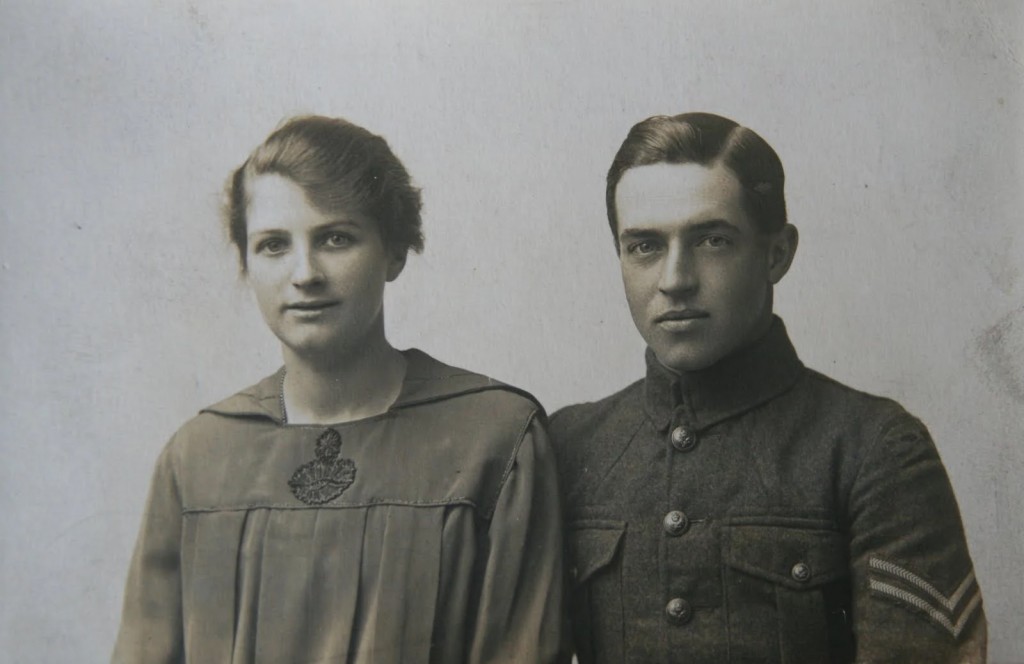
Talking to your relatives and searching family papers and photos can be an excellent way to start building your family tree
Tip no. 2: Record where you find your information
Wherever your research takes you, make a note of your sources. It will make life much easier if you ever need to double-check something, and helps you keep track of where you have already looked.
Tip no. 3: Birth, marriage and death indexes
Search the civil registration indexes – these are indexes of birth, marriage and death certificates which begin in 1837. The indexes are available on various websites – if you visit the ERO or your local Essex library, you can use www.ancestry.co.uk for free. The indexes will give you the basic information of when and where someone was born/married/died. You can find out more by ordering the full certificate, which you can do through the General Register Office, or for Essex certificates from us at ERO.
Tip no. 4: Search the census
Search the census records – census records are available for every ten years between 1841 and 1911. These fascinating records list all the people living in each household in the country, along with their ages and occupations and where they were born. Again, these are available on various websites, but you can search them for free at the ERO or your local Essex library on www.ancestry.co.uk
Tip no. 5: Move on to parish registers
Parish registers are church records which record baptisms, marriages and burials. In some cases these can date back to 1538, and so can be used to go back much further in time than censuses and birth/marriage/death records. Parish registers for the historic county of Essex (including parts of greater London which used to be in Essex such as West Ham and Stratford) are all kept at the Essex Record Office. We have digitised all of our parish registers and they are all available to view online at www.essexancestors.co.uk (with the exception of marriages after 1957). You can take out a subscription to view the images from home, or use the service for free in the ERO Searchroom. You can also view images of all 70,000 of our original wills, dating from the 1400s-1858. Double-check that the documents you want to view are available before taking out a subscription.
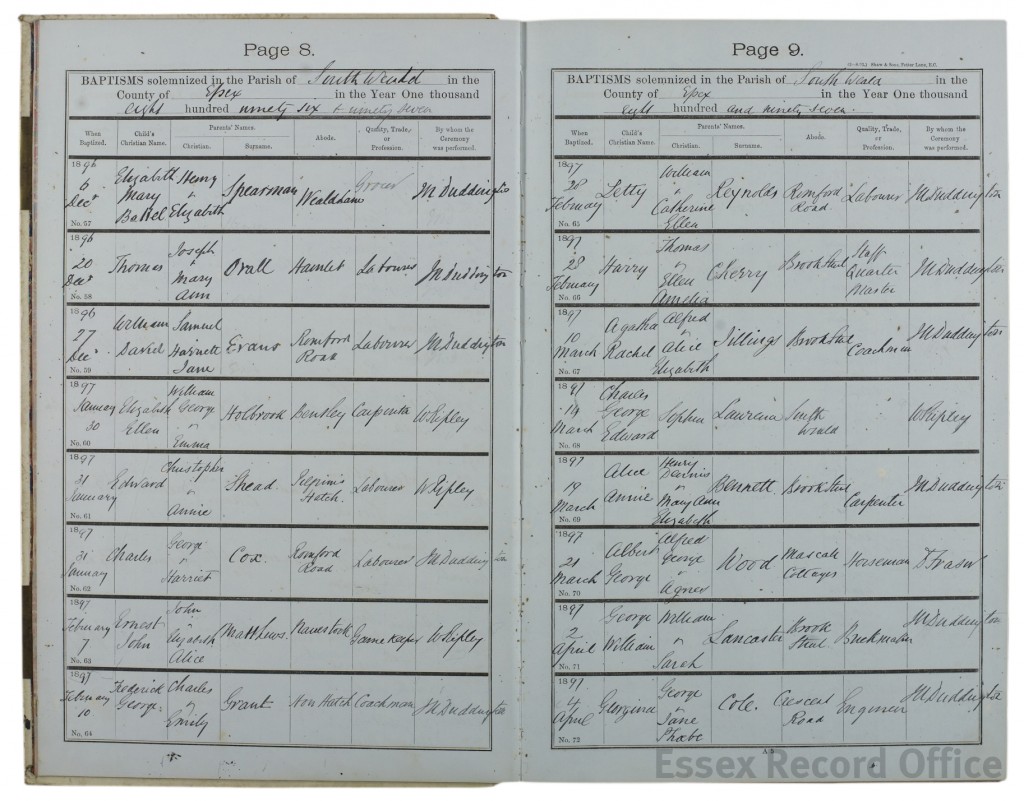
Parish registers record baptisms, marriages and burials and can date back to 1538. Essex parish registers are kept at ERO – digital images are available on Essex Archives Online
Tip no. 6: Ask for advice
If you want further advice or have specific questions about the kinds of records available, talk to our experts either in the Searchroom (find out how to visit us), e-mail us or give us a ring on 033301 32500.
Good luck and happy searching!

